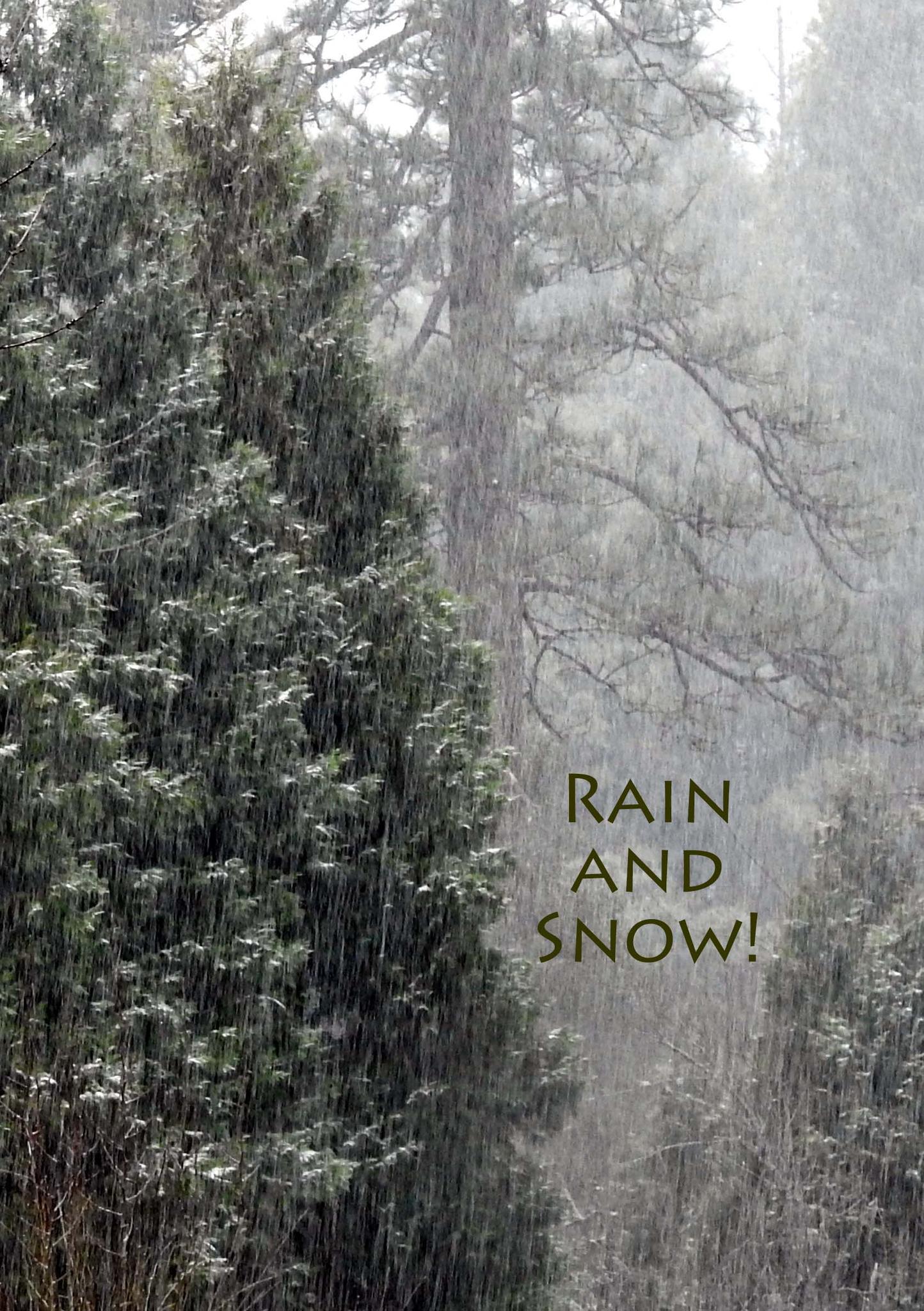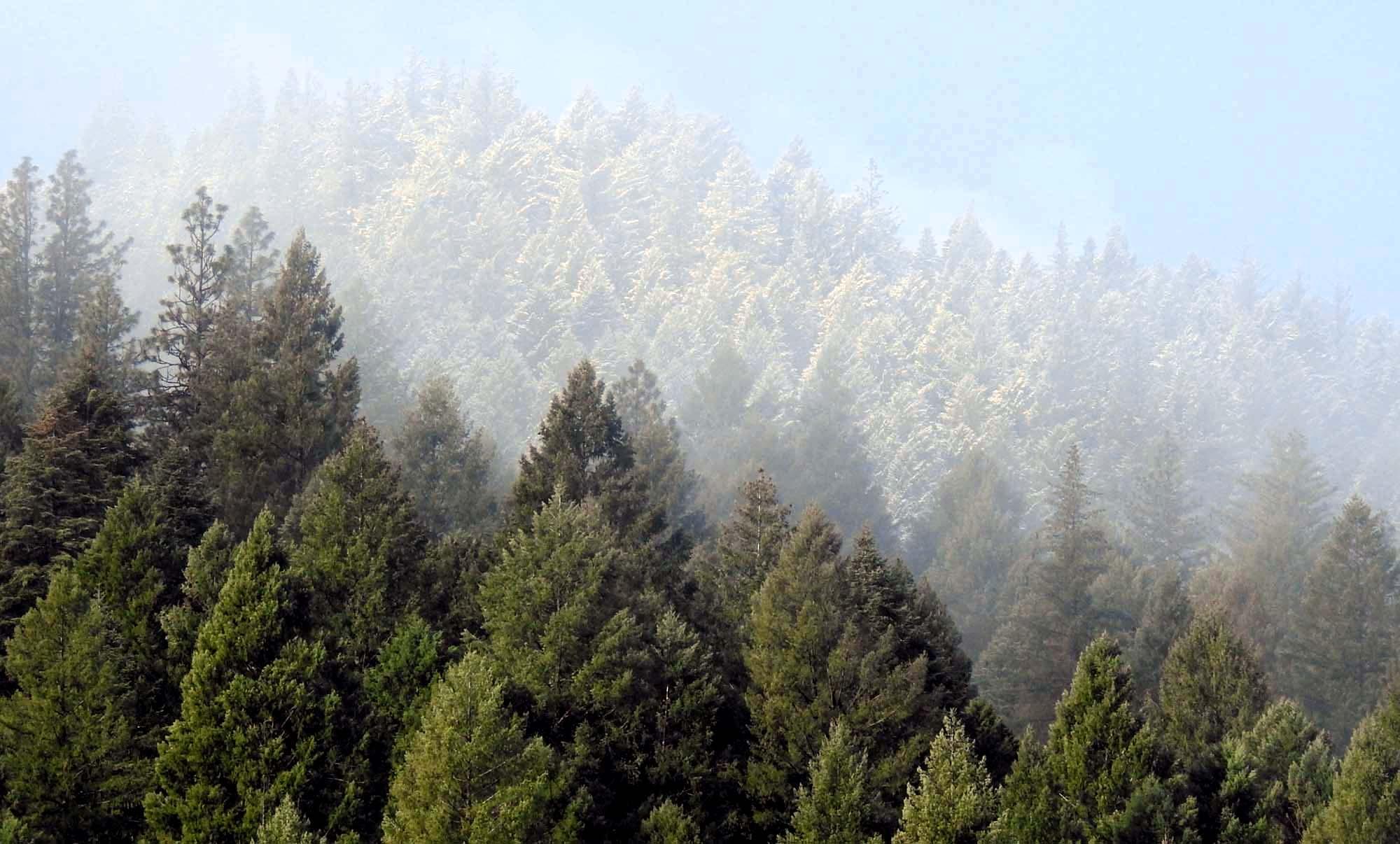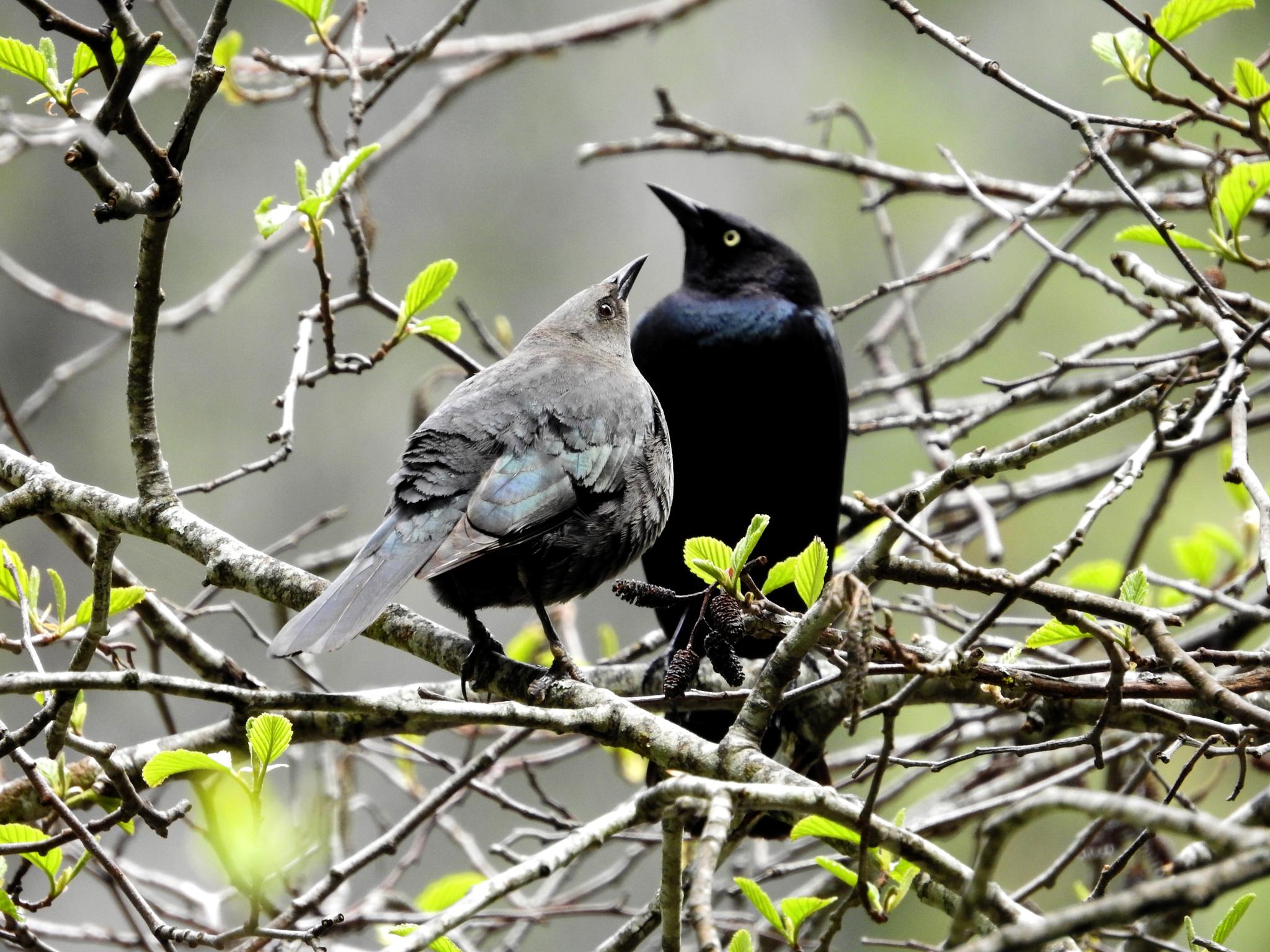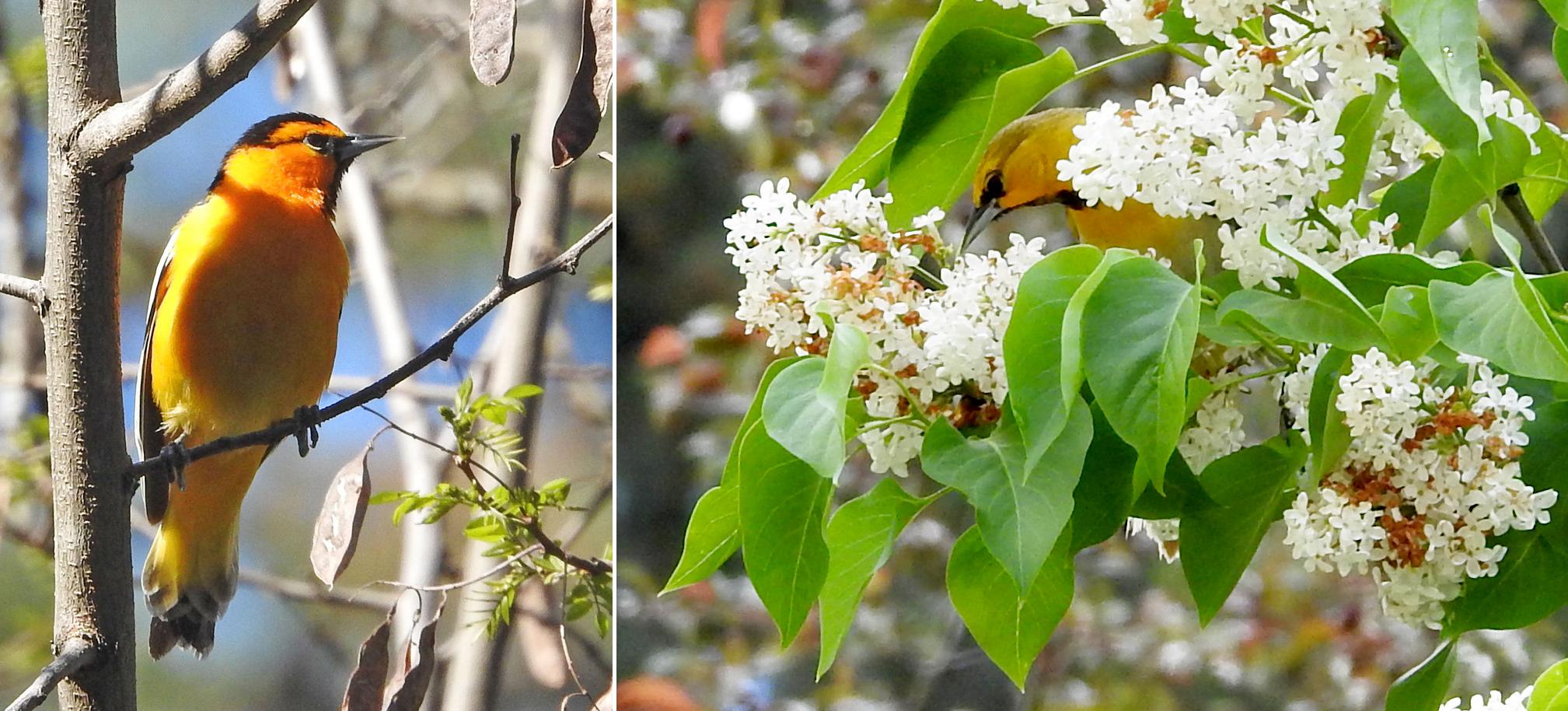
We had crazy weather last weekend! It hailed, snowed, thundered, and poured rain! In three days we received 2.62” of precipitation, including half an inch of snow! Up in the Lakes Basin they got two feet of new snow! It was great to get the extra moisture, and our water year total is now 50.43”! Yay! In contrast to that cold weather, a very warm dry spell is predicted for next week or more, with temperatures up in the 80’s!

Light snow on the Ridgetop

Brewer’s Blackbirds (female - male) — Euphagus cyanocephalus
New Arrivals — Migratory Songbirds
Every year Migratory Songbirds arrive in our neighborhood. Some stay and raise their young here, while others just pass through. Last Spring, there was a definite lack of our usual summer songbirds, due to the lingering snow and cold temperatures. This year, to my delight, it's looking like our usual summer residents and visitors are back to their normal pattern. Some of them are short-distance migrants, while others are long-distance migrants. The following information from https://birdsoftheworld.org explains the differences.
“Types Of Migration
“The term migration describes periodic, large-scale movements of populations of animals. One way to look at migration is to consider the distances traveled.
“Permanent residents do not migrate. They are able to find adequate supplies of food year-round.
“Short-distance migrants make relatively small movements, as from higher to lower elevations on a mountainside.
“Medium-distance migrants cover distances that span a few hundred miles.
“Long-distance migrants typically move from breeding ranges in the United States and Canada to wintering grounds in Central and South America. Despite the arduous journeys involved, long-distance migration is a feature of some 350 species of North American birds.”
Brewer’s Blackbirds are definitely short to medium distance migrants, and probably drop down to the foothills or the central valley for the winter. In the Spring they migrate up to our neighborhood to nest and raise their young!

Bullock’s Oriole (adult male - 1st year male) — Icterus bullockii
Your questions and comments are appreciated. Please feel free to email me at northyubanaturalist@gmail.com. Thanks!
Featured Articles

Sierra Hardware Plans Extensive Repairs After Flood Damage →
December 8, 2025
Sierra Hardware faces extensive repairs after Thanksgiving flood damages store flooring and drywall.
Sheriff’s Office Accepts $60,000 Grant for New Search and Rescue Team →
December 2, 2025
Confusion Surrounds Release of the Plumas County Grand Jury’s Report →
December 4, 2025
WCB Considers Grant for Sierra Valley Tribal Land Purchase →
Updated November 22, 2025
Downieville Fire Auxiliary Hosts Annual “Holiday on Main” Event Saturday →
December 2, 2025